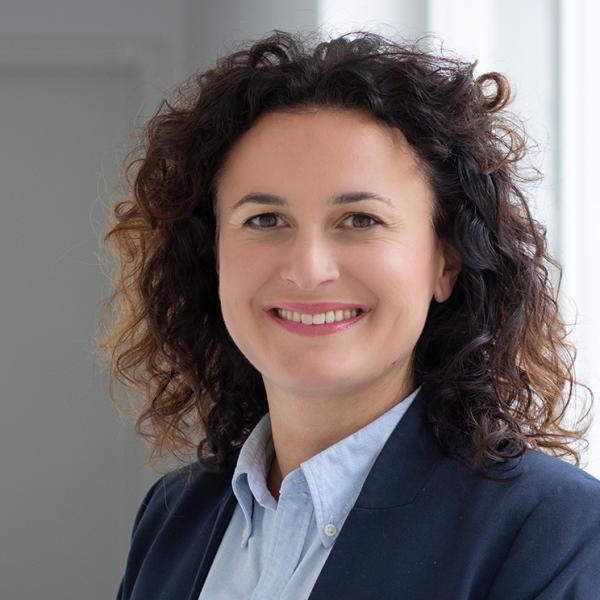ifo Media Center
The ifo Institute invites you to participate in the discussion of interesting economic topics via the Internet. In our ifo Media Center a whole series of remarkable events are available and can be viewed in full length. We also record selected speeches and presentations given by employees or at events and make them available in our Media Center.

Artificial Intelligence (AI)
It collects data, analyzes it, and can provide doctors with more precise information on the best possible patient care. It ensures driving safety in the road traffic of tomorrow. It helps decide whether we get the loan or not. Artificial intelligence (AI): the technology of the future is finding its way into work and everyday life. It is supposed to make our lives easier. However, it also harbors risks in areas including control, data protection, and job losses.
Sustainable Prosperity
In recent decades, economic growth driven by economic openness and globalization has brought prosperity to billions of people and reduced global poverty. However, this welcome development has been accompanied by a high burden on the environment and an erosion of the natural foundations of life. However, economic growth at the expense of the environment has its limits. Natural resources also fulfill essential economic functions. Long-term economic prosperity will only be possible if the overexploitation of nature is stopped.
The Energy Crisis
The price of electricity is rising, gas is becoming scarce, climate change is advancing: the current crises and geopolitical changes pose major challenges for energy policy. Do policymakers have to choose between securing the energy supply and protecting the climate? Should they keep nuclear power plants online longer than originally planned? Do we continue to plan for natural gas as a bridge technology? We need to speed up the expansion of renewables, increase energy efficiency, and expand infrastructures. Our focus is on bringing together insights on how to solve the acute crisis and shape the energy markets of the future.
War in Ukraine
The Russian invasion of Ukraine is not only a military and geopolitical turning point. It is also changing the economic situation. This affects both the short-term economic trend and the medium-term prospects for growth and prosperity.
Pension
The aging of society poses major challenges for the statutory pension system in Germany in the coming decades. By the mid-2030s, the baby boomer generation will have gradually retired. What do these shifts mean for the statutory pension insurance system? What measures must be taken to make financing the system sustainable?
Economic Policy Agenda 2021–2025
The starting position of Germany’s first post-Merkel government is not an easy one. Even before the coronavirus crisis, there were considerable challenges ahead. What should the next federal government’s economic and financial policies focus on?
Central Abitur
In recent months, there has been an increasingly intense debate about the need for comparable exit examinations throughout Germany. Taken at the end of secondary school, the exit exam or Abitur has German pupils demonstrate their readiness for higher education and is required for access to the university system. Over the past 60 years, the number of pupils who take the exam has steadily risen.
Coronavirus
The coronavirus crisis began in China in late 2019 and has caused major health and economic damage worldwide. In the affected countries, it triggered both a supply shock and a demand shock, thus giving rise to the essential difficulty in the economic management of the coronavirus.
Funding Policy
Regional disparities in income and employment opportunities, infrastructure, mobility, education, and health are sometimes very pronounced both in Europe and within Germany. Funding policy is therefore a key lever for supporting the development of economically and structurally weaker regions and for creating equal living conditions.
Demography
As the population ages, there are fewer and fewer young people to finance pensions. A declining number of working-age people are generating the revenue that the welfare state uses to provide benefits. Companies must align their human resources policies with demographic change. In the long term, municipalities will also be forced to realign their services: if the population grows, they will have to build day-care centers and schools; if the population shrinks, they will have to make downward adjustments to public administration and infrastructure. It is precisely because demographic processes proceed so slowly that the socio-political challenges they bring tend to fade into the background. However, the earlier the facts and available options are brought to the table, the sooner such diverse change can be managed.
Municipal Politics
Municipal politics has a direct influence on the economic and social life of local citizens. Cities, municipalities, and districts are therefore of central importance when it comes to structural change, demographic development, and competition between locations. At the same time, municipalities in Germany are facing major challenges: scarce public funds, the modernization and digitalization of local government, persistent structural weakness, and a growing gap in demographic development between urban and rural areas.
Free Trade
Free trade leads to all countries producing exactly those goods for which they have comparative advantages; i.e., producing them with less resource input than other goods. It thus increases people’s consumption options compared to a situation without trade (autarky). In the longer term, specialization through trade also allows for stronger productivity growth.
Labor Market
Germany’s labor market has seen positive development in recent years. Other European countries are struggling with youth unemployment and the emigration of young people. In Germany, comprehensive reforms made it possible to greatly reduce the mass unemployment of the 1990s and to integrate immigrants into the labor market.
Climate Policy
With the European Green Deal, European Commission President Ursula von der Leyen has defined a new growth and climate strategy. The aim of this strategy is to cut greenhouse gas emissions while also creating jobs, but there are still many questions regarding the form it should take and how to implement it. While the EU plans to achieve climate neutrality by 2050, the targets set in Germany are somewhat less ambitious: by 2050, the German government aims to drastically cut greenhouse gas emissions down to 80 to 95 percent of their 1990 levels.
Populism
For some years now, populism has been experiencing an upsurge not only in the United States but also in Europe. Witness the election of Donald Trump as US President, the government crisis in the UK, the gains of the Rassemblement National in France and the AfD in Germany, and the successes of the Lega and the Movimento Cinque Stelle in Italy.
EU Reforms
The European Union is a success story for Europe. However, the process of European unification has stalled. Economic development is diverging in some countries of the EU and dissatisfaction with the central institution is growing in many places. In addition, the EU is facing new and sometimes greater challenges today than it did a few years ago. The consequences of the euro crisis, the migration crisis, climate change, Brexit, and most recently, the coronavirus crisis require new approaches to solutions and have triggered sometimes intense debates about reforms and the future role of the EU.
Public Debt
As a result of the global financial crisis, debt levels in European economies have risen significantly: in the EU27, debt rose from 65.0 to 80.5 percent of GDP between 2008 and 2010, and to 86.6 percent by 2014. In the context of this rising public debt, some smaller and heavily indebted countries in Europe have come under increasing strain. In France, for example, public debt has since remained constant at over 95 percent, in Italy at over 130 percent, and in Greece at more than 180 percent of GDP.
Systems Competition
The third type of inter-system competition involves Western democracies competing with authoritarian forms of state capitalism that can be found in China, but also, in slightly different forms, in Russia and other smaller states like Vietnam.
Globalization
Globalization, or the continually increasing integration of the worldwide goods, labour and capital markets, presents great opportunities, but also comes with many perils. Appropriate economic policy framework conditions are required at a national and international level for the opportunities to lead to real benefits in terms of prosperity. Economists have always extolled the advantages of free trade.



